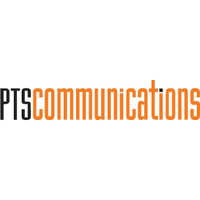What Is Hosted Phone System?
A hosted phone system, commonly referred to as a cloud phone system, is a telecommunications solution in which a third-party provider hosts and maintains the phone system. This eliminates the need for physical on-premises infrastructure while allowing organizations to access modern phone capabilities and services via an internet connection. The system is often offered as a monthly subscription, making it an affordable choice for small and medium-sized organizations.
A hosted phone system stores your data and calls on the cloud, adding an extra layer of security and reliability. This also means that you may use your phone system from anywhere, making it an excellent choice for remote and scattered teams. One of the primary advantages of a hosted phone system is its scalability. As your business expands, you can quickly add or remove phone lines and services without having to purchase and install new hardware.
This also means you only pay for what you require, making it an affordable alternative for enterprises of all sizes. A hosted phone system also provides advanced capabilities like voicemail-to-email, call forwarding, and automated attendant, to mention a few. These features aim to improve communication and streamline corporate operations.
Before choosing a hosted phone system, examine the provider's reliability and reputation, the quality of customer care provided, and the range of services available. It is essential that you investigate and compare several providers to find the greatest fit for your company's demands and budget. A well-chosen hosted phone system can help you boost your communication capabilities and overall business effectiveness.
What Are The Recent Trends In Hosted Phone System?
Recent trends in hosted phone systems indicate a push toward cloud-based solutions, enhanced features, and integration with other communication tools. One key development in Hosted Phone Systems is the shift to cloud-based solutions. This refers to the use of a virtual phone system housed in the cloud and accessible over the internet, as opposed to real hardware. This provides increased flexibility, scalability, and cost-effectiveness to enterprises of all sizes.
With the advent of remote work and the growing demand for a mobile workforce, cloud-based hosted phone systems have become a popular option for businesses trying to streamline their communication procedures. Another trend in the Hosted Phone System industry is the addition of enhanced functionality. Hosted phone systems today include a variety of functions, such as voicemail, call forwarding, auto-attendant, and call recording.
This gives firms a more comprehensive and professional phone system, which can improve internal and external communication. Furthermore, with the incorporation of new communication capabilities such as video conferencing and instant messaging, hosted phone systems are becoming a one-stop shop for all communication requirements. The integration of hosted phone systems with other communication technologies is a prominent market trend.
As businesses rely on various communication channels such as email, chat, and video conferencing, there is an increasing need for seamless integration of these tools. This enables a more integrated and effective communication process, both internally and externally, resulting in higher productivity and customer satisfaction.
Finally, there is an increasing demand for configurable and personalized hosted phone systems. Businesses may now customize their phone system to meet their individual needs and preferences, providing a more personalized and user-friendly experience. This includes customizable greetings, music on wait, and call routing options, which ensure that calls are routed to the appropriate person or department swiftly and efficiently.
Benefits Of Using Hosted Phone System
A hosted phone system, also known as a cloud-based phone system, is a communication solution in which a third-party supplier hosts and maintains the phone system rather than physically installing it on the buyer's premises. As the demand for remote communication and flexible work arrangements grows, more businesses are turning to hosted phone systems to suit their communication requirements.
Here are some major advantages of adopting a hosted phone system that potential purchasers should consider:
1. Cost Savings: One of the primary advantages of adopting a hosted phone system is cost savings. Traditional on-premise phone systems require organizations to spend in pricey equipment, upkeep, and updates. With a hosted phone system, the service provider handles all of the hardware and software requirements, saving businesses from upfront fees and ongoing maintenance charges.
2. Scalability: Another benefit of using a hosted phone system is the capacity to scale. As firms expand, their communication requirements alter. Hosted phone systems are highly scalable, allowing organizations to simply add or remove user extensions without incurring significant capital costs. This means that firms may respond swiftly to changing communication needs without regard for capacity limits.
3. Remote Accessibility: A hosted phone system allows employees to access the system and make and receive calls from any location with an internet connection. This capability has proven especially important in recent years, with the rise of distant work and the demand for virtual communication. Employees can stay connected to their workplace phone system using softphone applications, ensuring continuous communication and collaboration.
4. Advanced Options: Hosted phone systems include a variety of advanced communication options that are not commonly found in regular phone systems. These services include phone forwarding, voicemail, auto-attendant, call routing, and others. These features can boost productivity, simplify communication, and improve the overall customer experience.
5. Reliability: Hosted phone systems are renowned for their dependability. The system is less likely to experience downtime because it is housed on the servers of a third-party supplier and connects to various data centers. This means that firms may maintain constant communication with their clients and customers, resulting in higher customer satisfaction and loyalty.
6. User-Friendly: Hosted phone systems are simple to use, making them straightforward for businesses to adopt and integrate into their regular operations. The service provider handles all technical elements and provides user-friendly interfaces and simple dashboards, so staff only need little training to get started with the system.
Important Factors To Consider While Purchasing Hosted Phone System?
When it comes to purchasing a hosted phone system, customers need examine many key considerations before making a purchase. This form of phone system, which uses the internet to provide phone service, has several advantages, including flexibility, scalability, and cost-effectiveness. However, it is critical for consumers to thoroughly consider their options and choose a provider who matches their individual requirements.
Here are the main points to consider when acquiring a hosted phone system.
1. Reliability And Service Level Agreements (SLAs): When selecting a hosted phone system, it is critical to consider both the service's reliability and the provider's SLAs. Look for a company that guarantees uptime and provides uninterrupted service in the event of technical challenges or outages.
2. Features And Functionality: Consider the hosted phone system's features and functionality. Some companies give simple functions, while others offer more advanced choices including auto attendants, call routing, and voicemail to email. It is critical to examine your business requirements and select a system that has the capabilities required for effective communication.
3. Scalability: As your firm expands, so will its communication requirements. As a result, it is critical to select a hosted phone system that can be quickly scaled. Look for a provider who offers flexible pricing and allows you to add or remove services and users as needed.
4. Integration With Existing Systems: If your company already uses other communication or business tools, such as CRM software, it's critical to select a hosted phone system that works with those systems. This will simplify your communication operations and increase productivity.
5. Cost: Cost is an important consideration when choosing any company product. Hosted phone solutions allow you to save money on hardware and maintenance. However, it is critical to understand the price plans and confirm that the service provides straightforward pricing with no hidden extras.
6. Support And Training: A competent hosted phone system supplier should give appropriate support and training to ensure that users are both comfortable and efficient with the system. Look for a provider who gives 24-hour customer assistance and resources to help your team become acquainted with the system.
7. Security And Compliance: When selecting a hosted phone system, be sure the provider has strong security measures in place to secure your company's important information. Furthermore, if your organization is in a regulated industry, ensure that the provider complies with all applicable requirements.
What are the key features to look for in Hosted Phone System?
When choosing a Hosted Phone System for your organization, look for vital qualities that assure efficiency, dependability, and cost-effectiveness.
Here are the most important aspects to consider while comparing different providers:
1. Scalability: As your organization expands, your phone system should be able to handle an increasing number of customers and lines without causing any problems. Look for a hosted phone system that is easily scalable with minimal additional costs.
2. Reliability And Uptime: The availability of your phone system is critical to your business operations. Choose a service with a proven track record of dependability and assured uptime to avoid any losses or downtime.
3. Mobile-Friendliness: With the advent of remote work, having a hosted phone system that works with mobile devices is critical. Look for tools like mobile apps, call forwarding, and virtual attendance to guarantee that your remote team communicates seamlessly.
4. Call Management: A decent hosted phone system should have a variety of call management functions, including call routing, recording, and voicemail. These features not only increase efficiency, but also improve the client experience.
5. Integration With Other Tools: Your hosted phone system should be compatible with other corporate tools such as customer relationship management (CRM) software and email platforms. This will streamline your communication processes, saving time and effort for your staff.
6. Advanced Features: Consider the provider's additional capabilities, such as conference calling, auto-attendant, and call analytics. These can significantly improve the functionality of your phone system and corporate operations.
7. Security And Data Privacy: With cyber dangers on the rise, it is critical to select a hosted phone system that has robust security safeguards and data privacy regulations in place. Make sure you ask about their security precautions and compliance certifications.
8. Customer Support: In the event of an issue or complaint, it is critical to have dependable customer service from your hosted phone system supplier. Look for a company that offers 24/7 assistance and several channels of communication to ensure that any issues are resolved quickly and efficiently.
Why Do Businesses Need Hosted Phone System?
A business, regardless of size, relies greatly on effective communication for success. From internal cooperation to consumer interactions, communication is critical to driving corporate growth. Here's where a hosted phone system comes in. Hosted phone systems, or cloud-based phone systems, are virtual phone systems that are offered via the internet and hosted by a third-party supplier. In layman's terms, it means that rather than having actual phone equipment in your business, your phone system runs on software and is managed by a service provider. So, why do businesses require a hosted phone system?
1. Cost-Effectiveness: In comparison to traditional phone systems, a hosted phone system has much reduced initial expenditures. There is no need for high hardware, installation, or maintenance costs. As a business owner, you may save money and put it into areas that will help your company expand.
2. Flexibility: Hosted phone systems are incredibly adaptable and may readily meet the changing needs of a business. Adding or deleting phone lines on older phone systems can be a complex and costly procedure. However, with a cloud-based phone system, you can effortlessly add or remove lines as needed, giving your business the scalability it requires to grow.
3. Reliability: Businesses must have a reliable communication infrastructure in place. With older phone systems, power outages and technical malfunctions can cause complete communication breakdowns. Hosted phone systems, on the other hand, are resistant to such concerns because they are connected to the internet. This ensures that your business's communication is uninterrupted.
4. Sophisticated Features: Hosted phone systems include a variety of sophisticated capabilities that can improve your company's communication. Call forwarding, auto-attendant, voicemail to email transcription, and call analytics can all help you enhance productivity and provide better customer service.
5. Simple To Manage: Maintaining a traditional phone system can be time-consuming and complicated. With a hosted phone system, the service provider manages everything, freeing you your time and resources to focus on other critical elements of your organization.
How Much Time Is Required To Implement Hosted Phone System?
The implementation time for a hosted phone system varies depending on various factors, including the size and complexity of your organization, the precise features and configurations you select, and the provider you use. However, the usual time to properly establish a hosted phone system is 2-3 weeks. The implementation process consists of several essential steps.
First, your chosen supplier will consult with you to determine your company's requirements and develop a tailored plan for your phone system. This includes selecting the right hardware, configuring call routing and voicemail, and integrating any optional capabilities, such as call analytics or voicemail-to-email. Next, your provider will configure and test the system to ensure that everything works properly.
This can take anywhere from a few days to a week, depending on how sophisticated your system is. Once the system has been configured and tested, your supplier will arrange a training session for you and your staff. This is a vital step in ensuring that everyone is comfortable with the new phone system and understands all of its features and functionalities. Following the training, your provider will manage the installation and configuration of any gear, such as phones or routers.
This typically takes several days to complete. Overall, a hosted phone system may be installed in a couple of weeks, ensuring a smooth and hassle-free transition for your business. However, it is crucial to note that the implementation time will vary depending on your individual requirements and the service you select. As a result, it is usually better to consult with your preferred provider to obtain a more precise estimate for your company.
What Is The Level Of Customization Available In Hosted Phone System?
When selecting a hosted phone system for your organization, it is critical to understand the level of customization available. Hosted phone systems include several customization possibilities, allowing organizations to adjust the system to their exact requirements. One of the primary advantages of a hosted phone system is the flexibility to personalize call routing.
This enables organizations to route calls to different departments or employees based on predetermined criteria, such as time of day or caller ID. This can enhance call efficiency and ensure that consumers are always connected to the correct individual. Another customization option is the ability to add or delete features as required. Hosted phone systems frequently include services such as voicemail, call forwarding, and auto-attendant.
Businesses can select the capabilities they require and quickly add or remove them as their needs change. Furthermore, businesses can select the sort of phone devices to utilize with their hosted phone system. This offers you flexibility and can meet a variety of budget and communication requirements. Some organizations may prefer traditional desk phones, but others may use softphones or mobile devices.
Additionally, organizations can personalize their IVR (Interactive Voice Response) prompts and menus. This is especially useful for businesses with several locations or departments, as it allows them to design custom menus for each. Another level of flexibility offered by hosted phone systems is the option to interact with other corporate tools and software. CRM systems, email clients, and even social networking platforms may fall under this category.
It facilitates a more streamlined and effective communication procedure for enterprises. Overall, hosted phone systems provide significant levels of customization, allowing organizations to adjust the system to their own requirements. When choosing a hosted phone system, it is critical to understand which customization options are available and which are compatible with your company's goals and objectives.
Which Industries Can Benefit The Most From Hosted Phone System?
A hosted phone system, often known as a cloud-based phone system, provides numerous benefits to businesses of all sizes and industries. This technology enables organizations to make and receive phone calls via the internet, eliminating the need for traditional landlines and costly equipment. While any organization can benefit from a hosted phone system, particular industries can reap the most benefits.
Let's look at which industries might gain the most from a hosted phone system.
1. Retail: Effective customer communication is critical in the retail industry. A hosted phone system includes capabilities like call forwarding, auto-attendants, and voicemail-to-email, which can help small firms stay in touch with their clients. Retail enterprises can also broaden their reach by providing clients with local or toll-free numbers through features such as virtual phone numbers.
2. Healthcare: In the healthcare profession, doctors, nurses, patients, and other staff members must communicate seamlessly. A hosted phone system enables simple and secure communication with capabilities such as video calling, call recording, and HIPAA compliance. Healthcare personnel can use a hosted phone system to access their phone lines remotely, making it easier to give care to patients even when they are not physically present in the office.
3. Hotel: In the hotel industry, outstanding customer service is essential. A hosted phone system enables hotels, restaurants, and other hospitality businesses to manage bookings, take orders, and respond to client inquiries more quickly. Call queue, call routing, and virtual receptionists are all features that can help these firms improve customer service and optimize operations.
4. Professional Services: Lawyers, accountants, and consultants rely largely on communication to assist their clients. A hosted phone system gives these firms advanced services like call routing, conference calling, and call recording, ensuring that they are always available to their customers. Professionals may keep connected with their clients even when they are not at their offices, thanks to capabilities like voicemail-to-email.
5. Non-Profit Organizations: Non-profit organizations sometimes have restricted finances, making a hosted phone system a cost-effective alternative for their communication needs. Nonprofits can improve their fundraising efforts by tracking and analyzing call data using tools such as call analytics. These enterprises can also take advantage of a hosted phone system's flexibility and scalability, which allows them to add or delete lines as needed.
Conclusion
Finally, investing in a hosted phone system can provide significant benefits to businesses of all sizes. It is a more cost-effective and versatile alternative than traditional on-premise systems, with a broader choice of advanced capabilities and increased reliability. When selecting a hosted phone system, it is critical to carefully assess your company's demands and select a reliable provider who provides outstanding customer service and secure data processing.
Pricing and contract terms, the breadth of features available, interoperability with your current infrastructure, and mobile and remote capabilities are all important considerations. It is also critical to involve important stakeholders in the decision-making process and properly test the system before fully deploying it. This will ensure a smooth transition and increased productivity for your company. By following these steps and carefully researching different providers, you can confidently choose a hosted phone system that meets your business objectives and budget while boosting communication and efficiency within your firm.

















